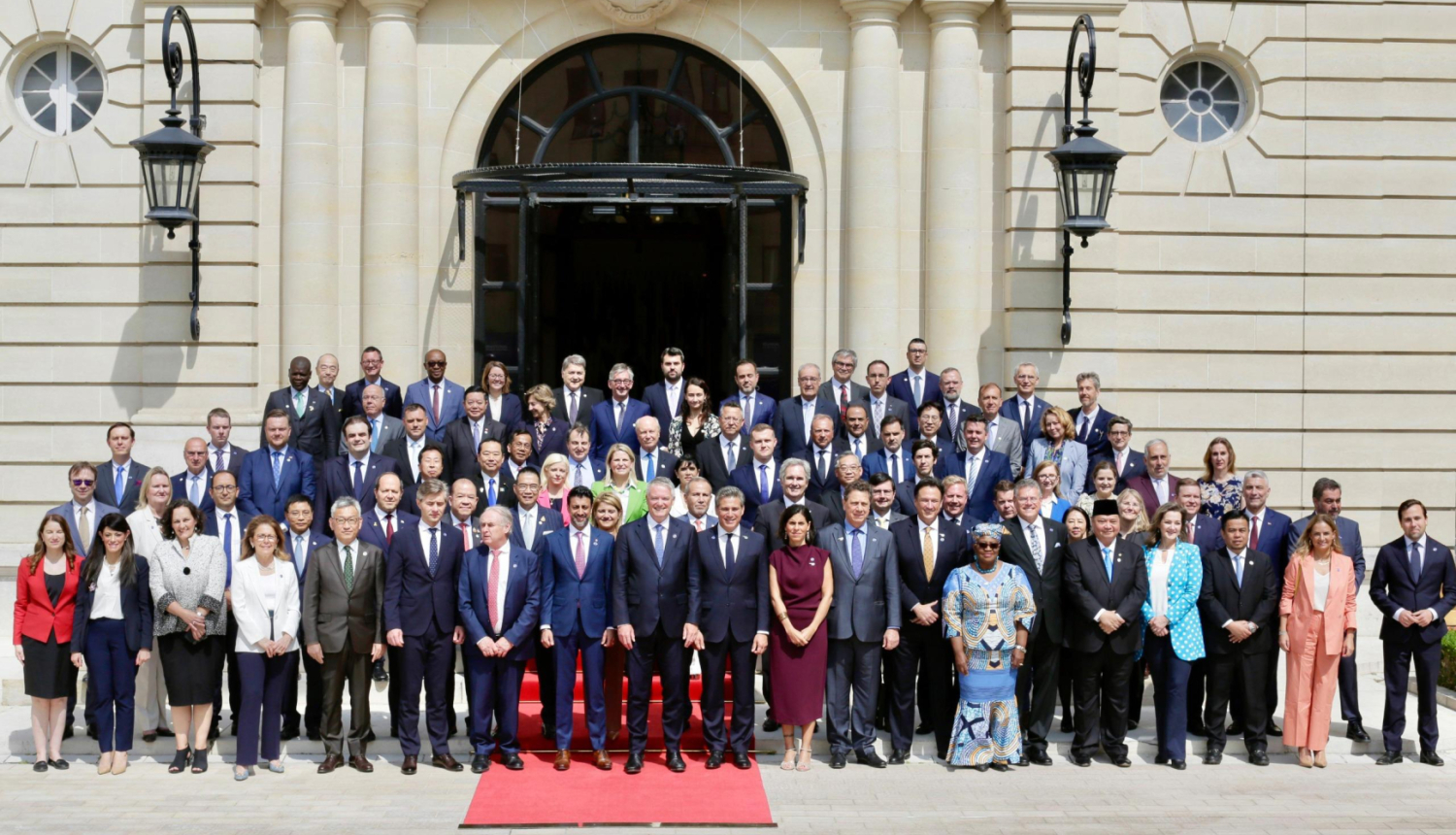On 3 and 4 June 2025, the Parliamentary Secretary of the Ministry of Foreign Affairs, Artjoms Uršuļskis, participated in the Ministerial Council Meeting of the Organisation for Economic Co-operation and Development (OECD) in Paris. Ministers discussed the importance of international cooperation in promoting inclusive and sustainable prosperity, while emphasising the role of rules-based trade, investment and innovation.
In a discussion on global relations, Artjoms Uršuļskis expressed his support for the further dissemination of standards and best practices developed by the OECD, so that they can be made more accessible to everyone, and he also emphasised the values of democracy, the rule of law and multilateralism. The Parliamentary Secretary confirmed Latvia's unwavering support for Ukraine: “Latvia strongly condemns Russia’s unjustified and unprovoked war of aggression against Ukraine. Russia’s actions undermine the very principles advocated by the OECD: respect for human rights and the rules-based international order. We must continue supporting Ukraine in its efforts of reconstruction, reform and resilience, ensuring that the OECD experience is fully mobilised in this endeavour.”
During a session on open markets and rules-based international trade, Artjoms Uršuļskis noted that Latvia has proactively severed trade links with Russia and Belarus. Latvia’s goal is a resilient and forward-looking economy, prioritizing security of supply chains and coordination with trusted partners and international organizations.
While discussing sustainable and inclusive economic growth through innovative policies, the Parliamentary Secretary shared Latvia’s experience in development cooperation and presented programmes focused on gender equality and business and economic development. In a session on the development of digital economy for the promotion of shared prosperity, Artjoms Uršuļskis highlighted the promising technological progress, drawing attention, however, to the fact that the benefits of technology should be shared equally among all partners.
In an exchange of views on artificial intelligence management and global cooperation, the Parliamentary Secretary welcomed the OECD’s work on artificial intelligence policy and stressed the need to align national strategies with international guidelines based on OECD principles and the Council of Europe’s Framework Convention on Artificial Intelligence. Those instruments, together with the EU Artificial Intelligence Act, form a solid foundation for a safe, interoperable and ethically responsible management of artificial intelligence.
The meeting of the Ministerial Council is an annual OECD highest level forum bringing together ministers and other high-ranking representatives from OECD Members and partner countries, as well as international organisations. The OECD 2025 Ministerial Council Meeting was chaired by Costa Rica.
Further information
The Organisation for Economic Co-operation and Development (OECD) provides member states with a unique forum and a globally recognized knowledge hub to effectively address topics of their interest in a range of sectors. The mission of the organization is to devise and drive reforms that raise people’s living standards and socio-economic conditions as well as economic competitiveness. To achieve this goal, the OECD works together with governments and policy makers on international guidelines and standards to promote sustainable development and seek solutions to current global challenges.




